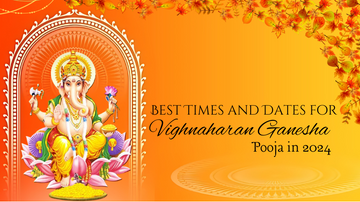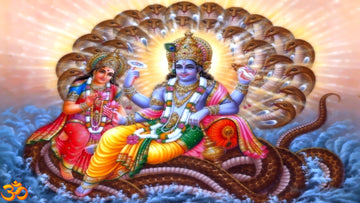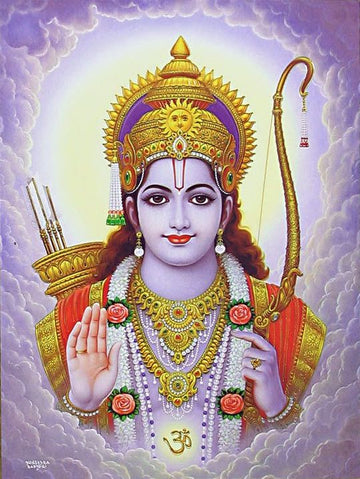
Hindu Months and their importance – Part III
- Margshirsha:
"Margashirsha" is a month in the Hindu calendar that typically falls between November and December. It is considered an important month for several reasons in Hinduism.
Religious significance: Margashirsha is considered a sacred month in Hinduism, and several important festivals and rituals take place during this time. The month begins with the celebration of Dev Diwali, which marks the day when Lord Vishnu returned to his abode after visiting the earth. Other important festivals celebrated during Margashirsha include Kartik Purnima, Gita Jayanti, and Vaikuntha Ekadashi.
Spiritual significance: Margashirsha is also a significant month for spiritual practices, such as meditation, chanting, and self-reflection. Many Hindus perform a daily ritual called "Margashirsha vrata," which involves fasting and performing various rituals and prayers every day during the month of Margashirsha. It is believed that performing spiritual practices during this month can help purify the mind and body, and bring one closer to the divine.
Astrological significance: Margashirsha is seen as a time of transition, as it marks the end of the autumn season and the beginning of the winter season. Astrologers often provide guidance on how to make the most of this period, and how to prepare for the challenges and opportunities that lie ahead.
Festivities: In many parts of India, Margashirsha is also a time for celebrating the harvest season, with various cultural and folk festivals taking place during this time. For example, in Gujarat, the festival of Utrayan is celebrated during this month, which marks the end of the winter solstice and the beginning of the longer days of spring.
Overall, Margashirsha is an important month in Hinduism, with cultural, spiritual, and astrological significance. It provides an opportunity for people to come together to celebrate and reflect on the divine and the natural world, and to prepare for the challenges and opportunities of the coming year.
- Paush:
"Paush" is a month in the Hindu calendar that typically falls between December and January. It is considered an important month for several reasons in Hinduism.
Religious significance: Paush is considered a sacred month in Hinduism, and several important festivals and rituals take place during this time. The month begins with the celebration of Dattatreya Jayanti, which marks the birth anniversary of Lord Dattatreya, a Hindu deity who is considered to be an incarnation of the Trimurti (Brahma, Vishnu, and Mahesh). Other important festivals celebrated during Paush include Makar Sankranti, Shattila Ekadashi, and Paush Purnima.
Spiritual significance: Paush is also a significant month for spiritual practices, such as meditation, chanting, and self-reflection. Many Hindus perform a daily ritual called "Pausha vrata," which involves fasting and performing various rituals and prayers every day during the month of Paush. It is believed that performing spiritual practices during this month can help purify the mind and body, and bring one closer to the divine.
Astrological significance: Paush is seen as a time of transition, as it marks the end of the winter season and the beginning of the spring season. Astrologers often provide guidance on how to make the most of this period, and how to prepare for the challenges and opportunities that lie ahead.
Festivities: In many parts of India, Paush is also a time for celebrating the harvest season, with various cultural and folk festivals taking place during this time. For example, in West Bengal, the festival of Poush Parbon is celebrated during this month, which marks the end of the harvest season and the beginning of the winter solstice.
Overall, Paush is an important month in Hinduism, with cultural, spiritual, and astrological significance. It provides an opportunity for people to come together to celebrate and reflect on the divine and the natural world, and to prepare for the challenges and opportunities of the coming year.
- Magh:
"Magh" is a month in the Hindu calendar that typically falls between January and February. It is considered an important month for several reasons in Hinduism.
Religious significance: Magh is considered a sacred month in Hinduism, and several important festivals and rituals take place during this time. The month begins with the celebration of Maghi Purnima, which marks the end of the month of Paush and the beginning of Magh. Other important festivals celebrated during Magh include Vasant Panchami, Maha Shivaratri, and Ratha Saptami.
Spiritual significance: Magh is also a significant month for spiritual practices, such as meditation, chanting, and self-reflection. Many Hindus perform a daily ritual called "Magha vrata," which involves fasting and performing various rituals and prayers every day during the month of Magh. It is believed that performing spiritual practices during this month can help purify the mind and body, and bring one closer to the divine.
Astrological significance: Magh is seen as a time of transition, as it marks the end of the winter season and the beginning of the spring season. Astrologers often provide guidance on how to make the most of this period, and how to prepare for the challenges and opportunities that lie ahead.
Festivities: In many parts of India, Magh is also a time for celebrating the harvest season, with various cultural and folk festivals taking place during this time. For example, in Punjab, the festival of Lohri is celebrated during this month, which marks the end of the winter solstice and the beginning of longer days.
Overall, Magh is an important month in Hinduism, with cultural, spiritual, and astrological significance. It provides an opportunity for people to come together to celebrate and reflect on the divine and the natural world, and to prepare for the challenges and opportunities of the coming year.
12. Phalgun:
"Phalgun" is a month in the Hindu calendar that typically falls between February and March. It is considered an important month for several reasons in Hinduism.
Religious significance: Phalgun is considered a sacred month in Hinduism, and several important festivals and rituals take place during this time. The month begins with the celebration of Magha Purnima, which marks the end of the month of Magh and the beginning of Phalgun. Other important festivals celebrated during Phalgun include Maha Shivaratri, Holi, and Rang Panchami.
Spiritual significance: Phalgun is also a significant month for spiritual practices, such as meditation, chanting, and self-reflection. Many Hindus perform a daily ritual called "Phalguna vrata," which involves fasting and performing various rituals and prayers every day during the month of Phalgun. It is believed that performing spiritual practices during this month can help purify the mind and body, and bring one closer to the divine.
Astrological significance: Phalgun is seen as a time of transition, as it marks the end of the winter season and the beginning of the spring season. Astrologers often provide guidance on how to make the most of this period, and how to prepare for the challenges and opportunities that lie ahead.
Festivities: In many parts of India, Phalgun is also a time for celebrating the arrival of spring, with the festival of Holi being the most prominent one. This festival is celebrated with colors, music, and dance, and is a time for people to come together to celebrate the joy of life and the arrival of new beginnings.
Overall, Phalgun is an important month in Hinduism, with cultural, spiritual, and astrological significance. It provides an opportunity for people to come together to celebrate and reflect on the divine and the natural world, and to prepare for the challenges and opportunities of the coming year.
***Adhik:
In the Hindu calendar, an "adhik" month is an extra month that is added to the calendar in order to align the lunar and solar calendars. The lunar calendar is approximately 29.5 days long, while the solar calendar is approximately 365.24 days long. This means that the lunar calendar falls short of the solar calendar by about 11 days each year. In order to make up for this discrepancy, an extra month is added to the lunar calendar every few years.
The adhik month is also known as "Purushottam Maas" and is considered to be a very auspicious month in Hinduism. It is believed that performing spiritual practices and good deeds during this month can bring immense benefits and blessings. Many Hindus observe fasts, perform pujas and yajnas, and engage in acts of charity and service during this month.
The adhik month is not a fixed month in the Hindu calendar and varies depending on the alignment of the lunar and solar calendars. It can occur approximately once every three years or so. The last adhik month occurred in 2020, and the next one is expected to occur in 2023.



